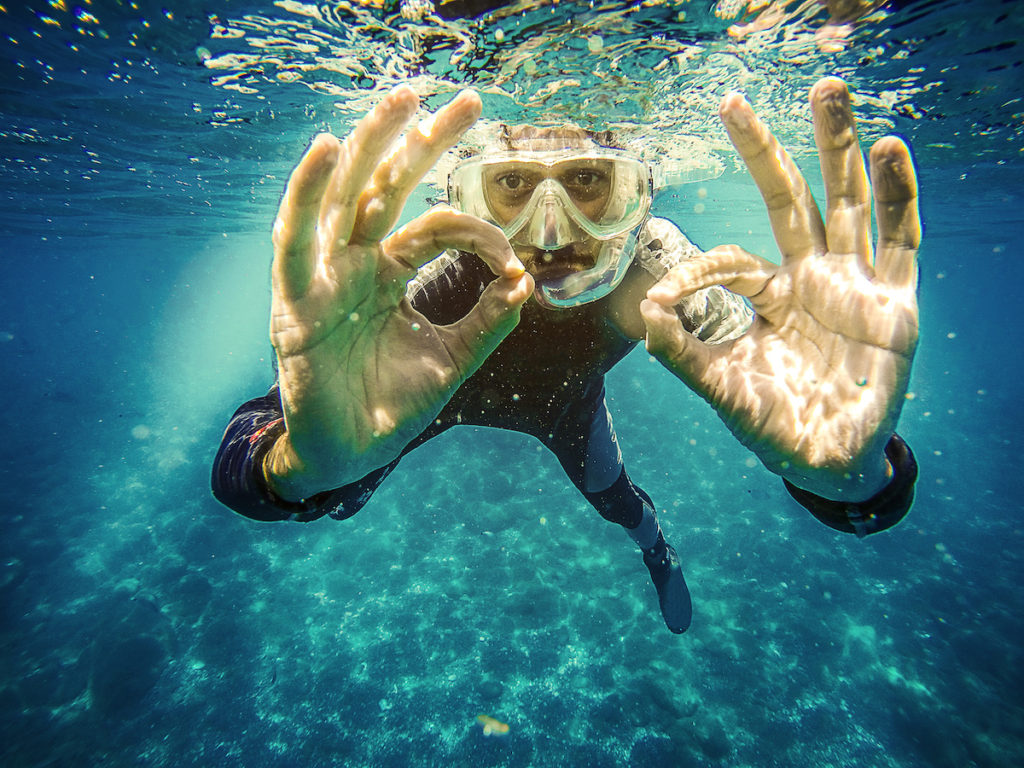Dive gear, check! But what about any safety precautions? Your gear bag is ready — mask, fins, BCD, regulator, dive computer — check, check, check. But amidst all the preparation, there’s one critical item that many divers still forget: reliable diving accident coverage.
It might not be as exciting as planning your dive itinerary or trying out a new wetsuit, but dive insurance can be the lifeline between a small incident and a major emergency. Before you roll off that dive boat, make sure your safety extends beyond your gear.
DiveAssure has you covered – Discover our diving accident coverage plans here.
How Risky Is Diving, Really?
Scuba diving has come a long way in terms of safety. With proper training and adherence to best practices, the risks are significantly lower than many everyday activities. In fact, you’re statistically more likely to get hurt jogging or driving a car than diving.
However, the stakes are higher in diving. When incidents do occur, they often require urgent, specialized medical attention – and those costs can be sky-high, especially in remote locations. Being underwater and exposed to increased pressure means that even minor problems can escalate quickly, especially if access to hyperbaric treatment is required.
What Could Go Wrong?
As mentioned before, diving accidents are quite rare. The problem with scuba diving is that if something does go wrong, because you are underwater and under high pressure, things can really go wrong and the medical expenses to cover treatment can be extortionate, especially when in a remote area. The most common diving accidents include decompression sickness, barotrauma ( usually in the ears), nitrogen narcosis caused accidents, equipment failure. Did you know, most fatal diving incidents occur at the surface after ascending and often divers that have drowned after having reached the surface still have their weight belts on.
Why Every Diver Should Consider Dedicated Dive Insurance
While we all hope to never need it, diving insurance is there for those “what if” moments. Whether it’s decompression sickness, an arterial gas embolism or a boating accident, having the right coverage means you don’t have to worry about the logistics and costs alone.
With DiveAssure, for example, you don’t just get reimbursed – you get immediate, expert-led support. Their emergency hotline connects you directly to dive medical professionals who coordinate with local services to arrange evacuation, hospitalization and even coverage for your travel companion’s unexpected accommodations.
In some countries, treatment won’t even begin until proof of insurance or prepayment is provided. Without coverage, you could be stranded-financially and physically.
What does dive insurance typically cover?
The best dive insurance plans are designed with divers in mind. For example, DiveAssure plans offer
- Emergency medical expenses, including hyperbaric treatment
- Evacuation and repatriation
- Assistance with travel arrangements
- Lost or damaged dive equipment
- Coverage for missed dive days or liveaboard departures
- No depth limits (as long as you dive within your certification limits)
- Technical diving coverage (excluding commercial diving)
Opt for our comprehensive Travel plan and your trip itself is covered – including cancellations, delays, lost baggage and missed connections.
Isn’t My Travel Insurance Enough?
Not necessarily. Many general travel insurance policies claim to cover scuba diving, but often with strict limitations: depth caps, limits on the number of dives per day, or total exclusion of technical diving.
And what about emergency evacuation or direct payments to hyperbaric chambers? That’s usually beyond the scope of general travel insurance. Specialized diving insurance is tailored to the unique risks of the sport – DiveAssure is designed by divers, for divers.
A Smart Addition to Every Dive Plan
Whether you are lake diving locally, wreck diving, or going on a trip of a lifetime to a remote location with pristine diving, having dive insurance in your back pocket lets you explore with confidence. You’ve trained for emergencies. You’ve invested in the right equipment. Don’t skip the coverage that ensures you’re protected when it matters most. Get Covered.
Ready to dive safer?
Written by Lily Langenberg, DiveAssure







